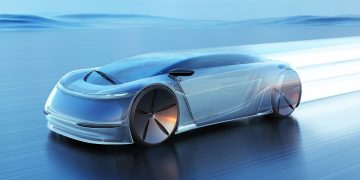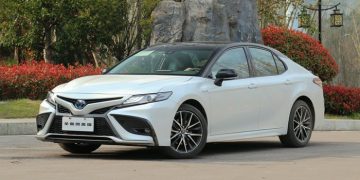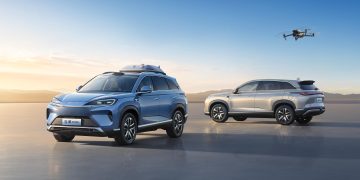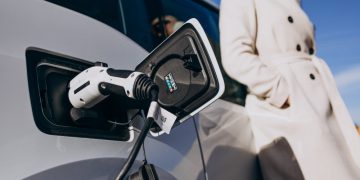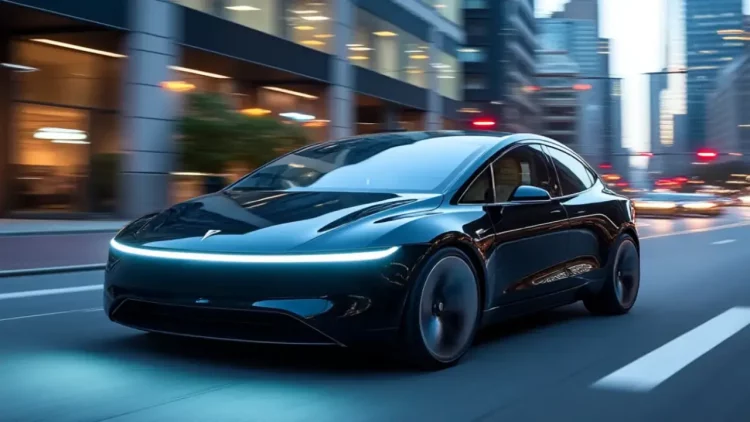Introduction: The Shift from Internal Combustion Engines to Electric Vehicles
The automotive industry is undergoing one of its most significant transformations in history. After more than a century of dominance by internal combustion engine (ICE) vehicles, the rise of electric vehicles (EVs) is reshaping the industry’s future. Increasing environmental concerns, stricter emissions regulations, and technological advancements in battery technology have fueled the growth of electric vehicles, creating a compelling case for their adoption across the globe. As a result, many are asking: are electric vehicles the end of the internal combustion engine?
The decline of internal combustion engine vehicles (ICEVs) will have profound implications for the automotive manufacturing industry, supply chains, and even global economies. For decades, ICEs have been the cornerstone of automotive manufacturing, driving the design, production, and innovation of vehicles. But with the accelerating shift toward electric mobility, the manufacturing sector is facing a fundamental disruption. This article will explore how the rise of electric vehicles is impacting traditional automakers, supply chains, and the broader manufacturing landscape, and predict what the future of automotive manufacturing will look like in the electric age.
The Decline of Internal Combustion Engines: A Growing Trend
The transition away from internal combustion engines is already underway. In countries around the world, governments are setting ambitious targets for reducing emissions, and many have already outlined plans to ban the sale of new gasoline and diesel vehicles within the next two to three decades. For example, the United Kingdom plans to ban the sale of new petrol and diesel cars by 2030, while the European Union is aiming to have zero-emissions vehicles make up 100% of new car sales by 2035. Similarly, several U.S. states, including California, have announced plans to phase out the sale of new gasoline-powered cars in the coming decades.
These regulatory shifts, combined with the growing consumer demand for cleaner, more sustainable vehicles, are accelerating the decline of ICE vehicles. Traditional automakers are increasingly focusing their efforts on electric mobility, with many major manufacturers announcing plans to electrify their entire fleets within the next 10 to 20 years. The race to produce more affordable, efficient, and sustainable electric vehicles is reshaping the competitive dynamics of the industry.
Consumer Preferences: The Rise of Sustainability and Clean Energy
One of the key factors driving the decline of internal combustion engine vehicles is changing consumer preferences. As awareness of climate change and environmental sustainability grows, consumers are becoming more conscious of the environmental impact of their vehicle choices. Internal combustion engines are a major source of air pollution, emitting harmful pollutants like nitrogen oxides (NOx) and particulate matter that contribute to poor air quality and health problems.
Electric vehicles, on the other hand, produce zero tailpipe emissions, making them an attractive option for environmentally conscious consumers. As battery technology has advanced, EVs are now capable of offering ranges that rival traditional gasoline-powered vehicles, alleviating concerns about “range anxiety” and making EVs a practical choice for everyday use.
In addition to environmental concerns, the cost of ownership of electric vehicles is becoming more appealing. Although the initial price of an EV can be higher than that of a comparable gasoline vehicle, the long-term savings associated with lower fuel costs and reduced maintenance requirements are making EVs more financially attractive. As the cost of batteries continues to fall, and as governments continue to offer incentives and rebates for purchasing EVs, the financial appeal of electric vehicles is expected to grow even more.
The Impact of Electric Vehicles on Automotive Manufacturing
The rise of electric vehicles is having a profound effect on the way cars are designed, manufactured, and sold. The shift from internal combustion engines to electric drivetrains represents a fundamental change in automotive manufacturing, from the components that make up the vehicle to the entire supply chain.
Simplification of Vehicle Architecture
Electric vehicles have far fewer moving parts than internal combustion engine vehicles. Traditional ICE vehicles require complex systems such as the engine, transmission, exhaust, and fuel systems. In contrast, electric vehicles rely on simpler powertrains that include an electric motor, battery pack, and charging system. This simplification of vehicle architecture means that the design and manufacturing processes for electric vehicles are quite different from those of traditional gasoline-powered vehicles.
For automakers, this shift requires a rethinking of production lines and assembly processes. The move to electric drivetrains necessitates changes in factory layouts and the integration of new manufacturing technologies, such as robotics and automation. Additionally, the supply chain for electric vehicles is vastly different from that of ICE vehicles, as it requires the sourcing of materials like lithium, cobalt, and nickel for battery production.
The simplification of vehicle architecture also means that traditional automotive suppliers—who have long provided components for ICE vehicles—will face major disruptions. Many of the companies that produce engine components, exhaust systems, and fuel systems will need to pivot to new markets, producing parts for electric drivetrains or battery systems. This shift in the supply chain will require significant investment in research and development, as well as changes in manufacturing processes and capabilities.
Battery Production: A New Focus for Automakers
One of the most significant changes in the automotive manufacturing landscape is the growing emphasis on battery production. As electric vehicles rely on high-capacity lithium-ion batteries to power their electric motors, automakers are investing heavily in battery technology and production facilities. In the past, traditional automakers have focused on producing vehicles and sourcing parts from third-party suppliers, but the move to electric vehicles has prompted a shift in this model.
Some automakers, such as Tesla, have embraced vertical integration by producing their own batteries. Tesla’s Gigafactory, for example, manufactures not only electric vehicles but also batteries for those vehicles. Other automakers, such as General Motors and Ford, are forming partnerships with battery manufacturers and investing in new battery production facilities to secure a stable supply of high-quality batteries. In some cases, traditional automakers are even entering the mining business to secure access to the raw materials required for battery production.
The need for a reliable, sustainable, and cost-effective battery supply chain is one of the biggest challenges facing the automotive industry as it shifts to electric vehicles. Automakers must ensure that they can source enough raw materials, such as lithium and cobalt, to meet the growing demand for EVs. At the same time, they must invest in the development of next-generation battery technologies, such as solid-state batteries, which promise to offer greater energy density, faster charging times, and longer lifespans.

The Shift to Software and Electronics
As electric vehicles become more advanced, the role of software and electronics in automotive manufacturing is also growing. Electric vehicles rely heavily on sophisticated software systems to manage everything from battery charging to autonomous driving capabilities. In many ways, EVs are becoming more like computers on wheels, with software playing an increasingly important role in vehicle performance and functionality.
For automakers, this shift means that they must invest in software development and digital platforms. Companies like Tesla have pioneered the integration of over-the-air software updates, allowing EV owners to receive new features and performance improvements without needing to visit a dealership. Traditional automakers are following suit, with many now focusing on developing their own software platforms to enhance the connectivity and functionality of their vehicles.
This increasing reliance on software and electronics also creates opportunities for new players to enter the automotive industry. Tech companies like Apple, Google, and Amazon are all exploring ways to integrate their technologies into electric vehicles, whether through infotainment systems, autonomous driving technology, or cloud-based services. The competition in the automotive space is no longer limited to traditional manufacturers—it now includes some of the biggest names in the tech industry.
Implications for the Global Supply Chain
The rise of electric vehicles is having significant implications for the global automotive supply chain. Traditional suppliers who specialize in engine components, fuel systems, and exhaust systems will need to adapt to the new demands of the EV market. This will require them to invest in new technologies and manufacturing processes, as well as develop new partnerships with battery manufacturers and EV producers.
Additionally, the demand for raw materials such as lithium, cobalt, nickel, and rare earth metals is expected to rise significantly as the production of electric vehicles ramps up. Automakers will need to secure reliable and sustainable sources of these materials to ensure that they can meet the growing demand for EVs. This could lead to new supply chain partnerships and even shifts in global trade patterns, as countries with significant reserves of these materials become more important players in the EV supply chain.
At the same time, the increased focus on sustainability in the automotive industry means that supply chains will need to become more transparent and responsible. Companies will need to ensure that the materials used in their vehicles are sourced ethically and that their manufacturing processes minimize environmental impact.
The End of the Internal Combustion Engine: What Does the Future Hold?
As electric vehicles continue to gain market share, the internal combustion engine appears to be on its way out. The decline of ICE vehicles will not happen overnight, but the shift to electric mobility is inevitable. In the coming decades, we can expect to see a significant decline in the production of gasoline and diesel-powered vehicles, with electric vehicles becoming the dominant mode of transportation.
For traditional automakers, this shift presents both challenges and opportunities. While the transition to electric vehicles will require significant investment and adaptation, it also opens up new avenues for growth in the rapidly expanding EV market. Companies that are able to innovate and embrace the electric future will thrive, while those that cling to outdated ICE technologies may struggle to remain relevant.
The shift from internal combustion engines to electric vehicles is not just a technological change—it represents a fundamental transformation of the automotive manufacturing industry. The future of automotive manufacturing will be shaped by electric mobility, and the industry will continue to evolve as it embraces new technologies, supply chains, and business models.
Conclusion: A New Era for Automotive Manufacturing
The rise of electric vehicles is the beginning of a new era in automotive manufacturing. As internal combustion engines give way to electric drivetrains, traditional automakers and suppliers will face significant challenges but also immense opportunities. The shift to EVs will fundamentally alter the design, production, and supply chains of the automotive industry, and companies must be prepared to adapt to this new landscape.
Electric vehicles are not just the future—they are the present. The decline of internal combustion engine vehicles is inevitable, and the automotive industry must embrace this shift to remain competitive. The future of auto manufacturing lies in electric mobility, and the companies that invest in innovation and sustainability will lead the way.



